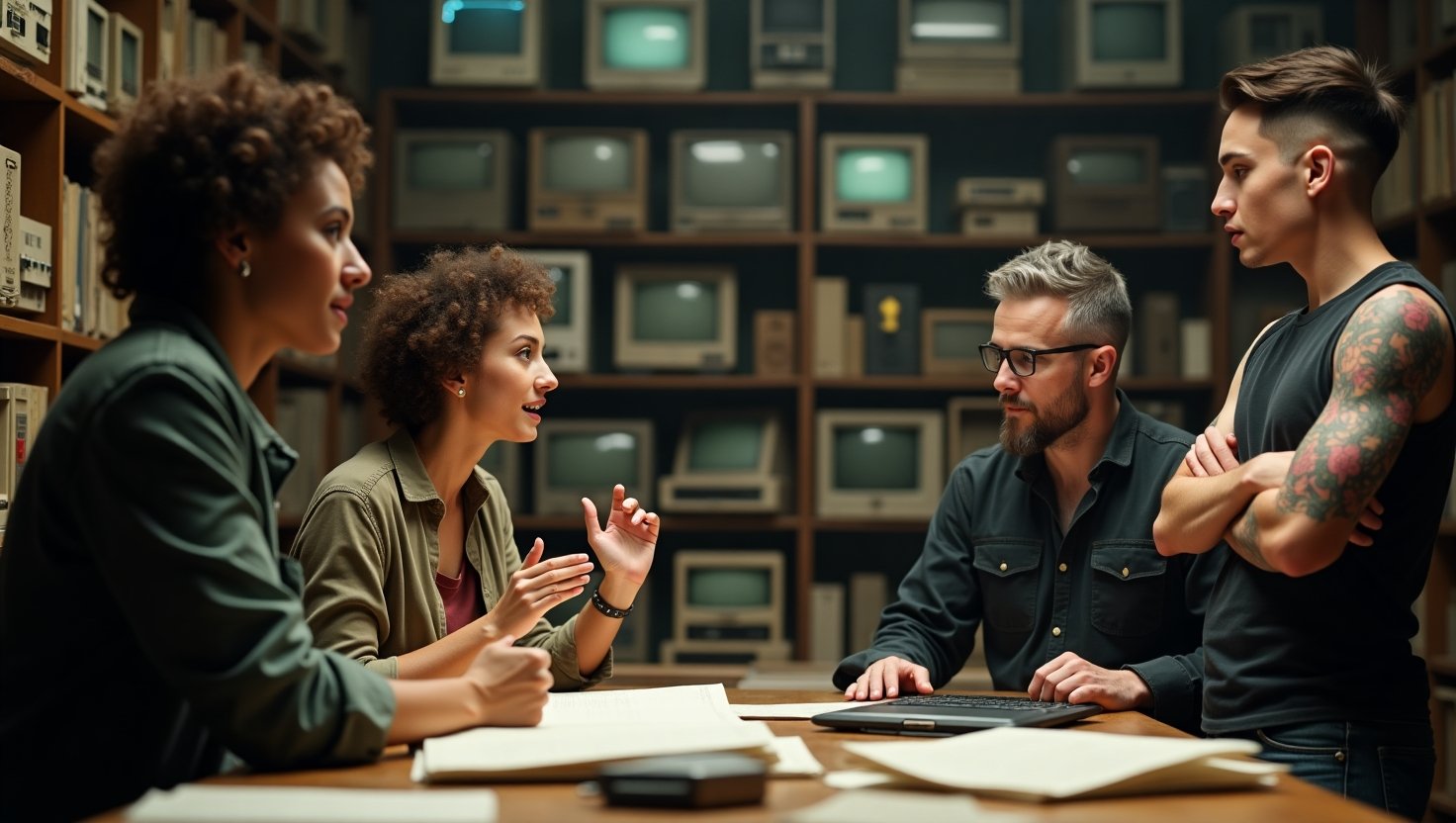Copyright in AI: Understanding the Legal Landscape
Introduction
In the digital age, artificial intelligence has transcended its initial boundaries, evolving into a powerful tool capable of generating content with unprecedented efficiency. As AI systems like Midjourney create increasingly sophisticated media, the question of copyright in AI has become a pressing concern. Recognizing the dynamic interplay between human creativity and machine-generated content is crucial, particularly in light of controversies such as the impending Disney lawsuit. This legal battle underscores the complex debate over AI-generated content and intellectual property rights, challenging traditional views on authorship and ownership.
Background
To comprehend the evolving controversy surrounding copyright in AI, it’s important to understand what generative AI entails. Generative AI refers to a subset of artificial intelligence designed to produce content across various mediums, from text and music to animations and videos. It’s noteworthy that generative AI has made substantial inroads into video production, where it can replicate and transform existing creative works.
The commotion between Disney and Midjourney epitomizes the modern-day copyright challenges presented by AI. Disney alleges that Midjourney’s V1 video tool infringes upon copyrighted materials by generating videos with familiar characters like Wall-E and Shrek (source: Wired). This lawsuit underscores the existing tension between current intellectual property laws and emerging AI technologies, which were not conceivable during the formulation of traditional copyright statutes.
Trend
The surge in lawsuits involving generative AI highlights an emerging trend of litigious scrutiny within the industry. The Midjourney vs. Disney case serves as a prominent example but is far from an isolated incident. Other companies have similarly faced allegations of copyright infringement, drawing attention to the legal ambiguities surrounding AI-created content.
In one analogous situation, trying to apply old laws to AI is like using candle regulations to govern modern electricity – both light up the night but in vastly different ways. The implications of these legal encounters resonate throughout the AI community, forcing developers and users alike to navigate a precarious landscape where innovation could swiftly meet litigation.
Insight
Expert opinions on this landscape reveal a complex web of potential ramifications for AI-generated content in copyright laws. For example, Horacio Gutierrez, Disney’s legal head, likens Midjourney’s intellectual practices to outright piracy, while AI scholar Gary Marcus stresses that current guardrails offer only basic protection (source: Wired). This discourse portrays the intricate balance between pushing technological boundaries and respecting traditional intellectual property rights.
The stakes are high not only for AI developers but also for businesses that leverage AI creativity. Missteps in navigating these legal waters could mean substantial financial penalties, loss of reputation, or even crippling operational constraints as creators and corporations remain wary of inadvertently crossing legal boundaries.
Forecast
Given the current trajectory, it’s plausible that copyright laws will evolve to better accommodate the idiosyncrasies of AI-generated content. Companies like Disney and Universal are likely to wield significant power in shaping future frameworks, possibly leading to stricter parameters that govern AI’s creative output. If these legal standards become more stringent, businesses must prepare by fostering compliance and adopting innovative legal strategies.
Moreover, as AI continues to defy current limitations, the legal profession may witness a surge in AI-specific copyright experts, analogous to the rise of tech lawyers during the dawn of the internet era. For the average business, this evolving situation underscores the importance of proactive adaptation in navigating copyright laws that are increasingly being reshaped by AI technologies.
Call to Action
In this rapidly shifting landscape, staying informed is essential. As copyright in AI continues to evolve, it’s imperative for stakeholders to remain vigilant about legal changes. Subscribe to updates or join discussions concerning intellectual property in AI to stay ahead of the curve. For those eager to delve deeper into the intersection of AI and copyright, consider exploring resources like this article that elaborate on the intricate challenges faced by companies like Midjourney.

